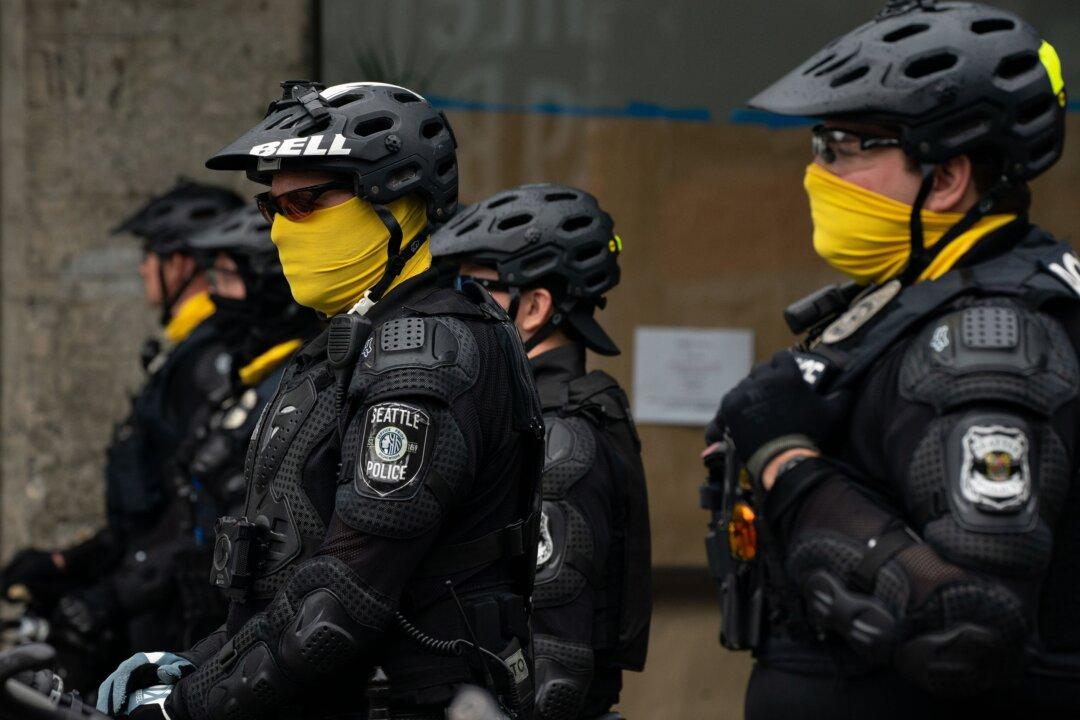The Seattle Police Department (SPD) has lost almost 20 percent of its police force in the past year and a half, according to a law enforcement officer.
SPD officer Clayton Powell, who has been with the department for nearly 27 years, told CBS News that some 260 officers have left during that time, and that he’s also retiring early, although he had previously planned to leave when he hit three decades with the force.





